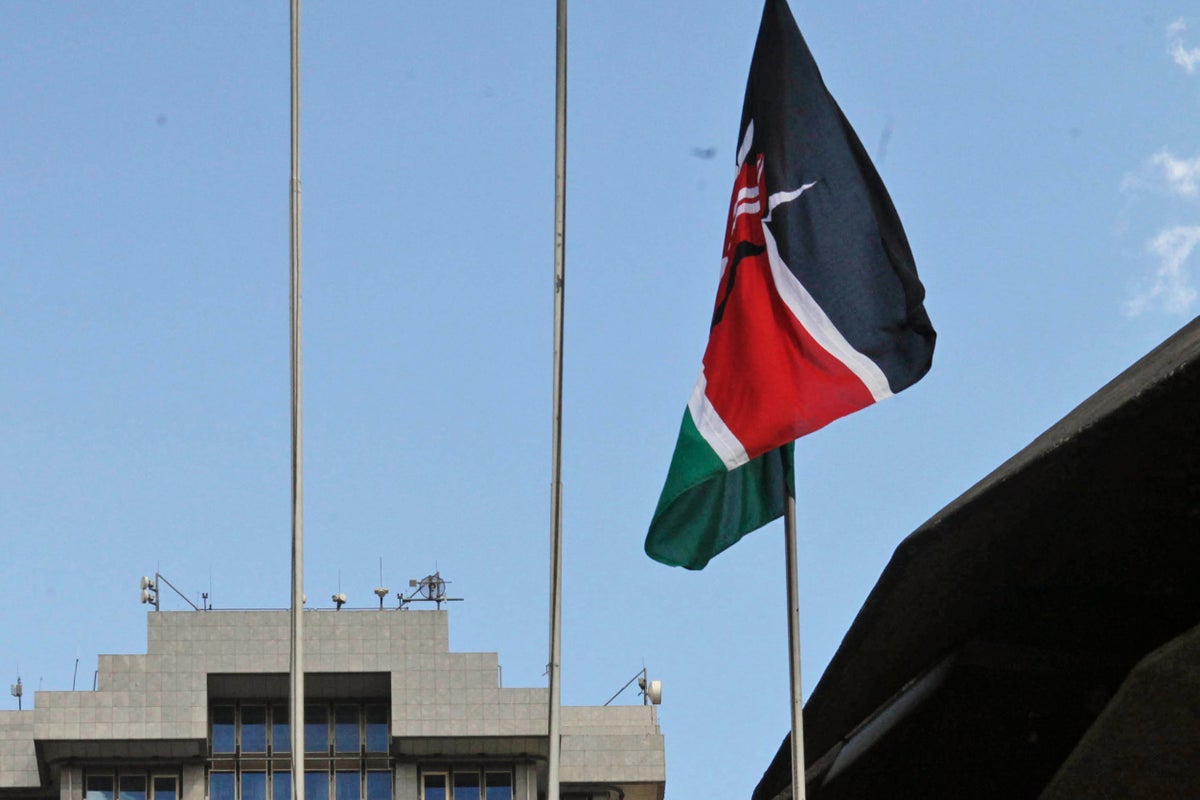
For the first time, Britain's government has agreed to pay out millions in pounds to Kenyans to settle a civil lawsuit after its military forces had their legal immunity in Kenya lifted.
The payout of 2.9 million British pounds ($3.9 million) to settle damages for a wildfire accidentally started by British soldiers in Kenya in 2021 follows a landmark ruling that stripped the U.K. government and British Army of immunity from Kenyan civil suits.
That has opened a new chapter in accountability for foreign militaries' actions on Kenyan soil, and the British military deployment in the country faces a series of controversies over the conduct of its personnel both in Kenyan and U.K. courts.
Damage would take decades to restore
Over 7,700 Kenyans and an environmental lobby group had filed a class-action suit before the Kenyan Environment and Land Court, accusing the British Army Training Unit in Kenya of destroying more than 12,000 acres of the Lolldaiga Hills in central Kenya 2021.
The British government admitted that the fire had been started accidentally by a soldier’s kerosene stove. The blaze took almost two weeks to put out and caused the death of one person and an unspecified number of animals.
Locals said toxic fumes from the fire caused health issues, including respiratory complications and damaged eyesight.
An environmental assessment presented before court showed that the fire caused extensive damage that would take between 30 and 50 years to tackle.
The British government had argued that it had immunity from trial in Kenyan courts, but that was thrown out in a landmark ruling by High Court Judge Kossy Bor, who stated that the U.K. lost absolute immunity against trial in local courts when it entered into a defense treaty with Kenya.
It was the first time Kenyan courts were able to try civil claims against British military forces.
Kelvin Kubai, a Lolldaiga community legal representative, lauded the settlement, saying it sets a precedent for future claims and redefines diplomatic and military accountability in host countries.
Many, however, expressed strong disappointment over the compensation amounts. Some residents say the payment is as little as 129 pounds for some, and say the payout falls far short of their 575-million pound demand.
“My home is closest to Lolldaiga Hills, so I suffered significant damages from the smoke of the fire. I also helped put out the fire," said local resident Charles Ndungu. “To learn that people are receiving just 22,500 Kenya shillings (129 pounds) is shocking.”
Some were planning protests to renew calls for transparency and justice.
John Kiunjuri, an official of the Lolldaiga community that sued the British Army, told The Associated Press that “they would meet soon to discuss further steps."
Sexual conduct bans
Meanwhile, the British Army is grappling with recent revelations that some soldiers continue to violate sexual conduct bans by engaging in transactional sex despite regulations.
A report released by Britain's Ministry of Defense earlier this month shows that, despite instituting a ban against transactional sex, British soldiers stationed in central Kenya's Nanyuki area continue to fuel prostitution, which is illegal in Kenya.
British authorities opened an inquiry after a 2024 investigative documentary by British outlet ITV revealed that soldiers stationed in Nanyuki were still fueling prostitution despite army regulations forbidding it.
The inquiry concluded that “it is more likely than not that, despite the training provided by the Army and the control measures in place, transactional sexual activity by UK personnel in Kenya has continued."
Soldiers alleged to have fathered children during deployments
The report came after another ruling by the U.K. High Court mandating the release of contact details for 11 British soldiers alleged to have fathered children with Kenyan women during their deployment, potentially triggering a wave of paternity cases, citizenship claims, and reparations.
Despite enjoying a mutual military partnership, the century-old military pact between Kenya and Britain, the country’s former colonial ruler, has come under increasing scrutiny over alleged misconduct of British soldiers. Demands for a review of the military pact between the two nations have been growing louder.
Kenya and the U.K. signed a Defense Cooperation Agreement in 2015, under which Kenya retains jurisdiction over civil and criminal cases involving British troops on Kenyan soil. The agreement is renewable every five years and was last renewed in 2021. The agreement allows approximately 3,000 British soldiers to train in Kenya annually.







